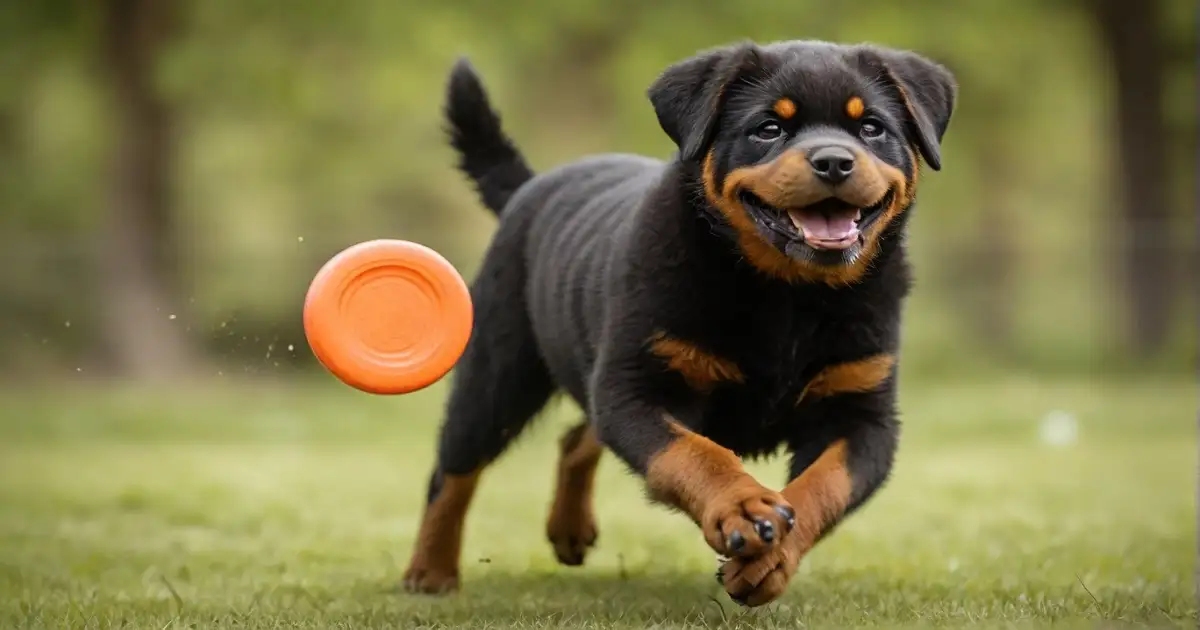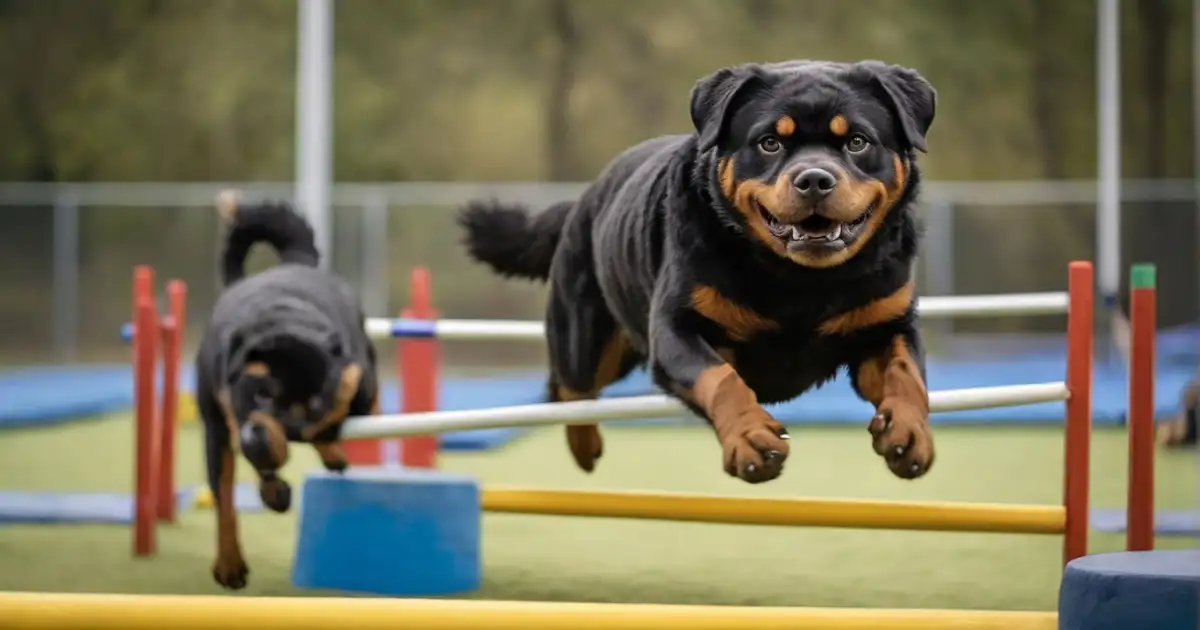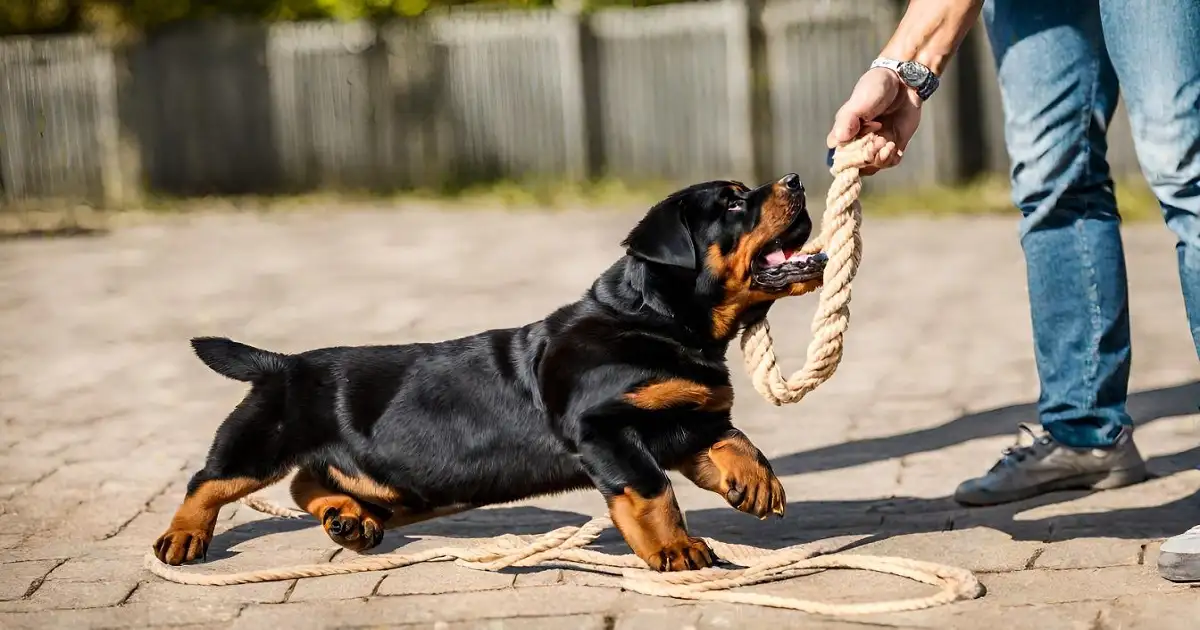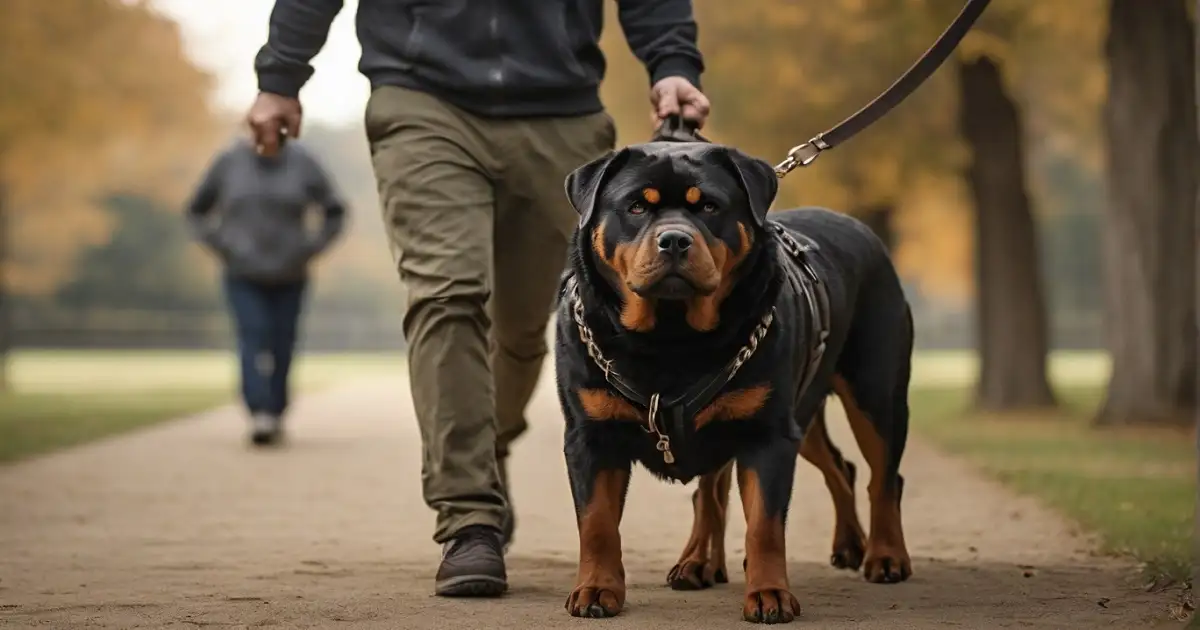Sending your Rottweiler to training camp can provide massive advantages for each of you and your pup. This complete guide will cover everything you need to recognize, from choosing the right camp and software to preparing your dog and reinforcing the training learned. Read on for pointers and recommendations to assist in making the maximum out of Rottweiler training camp!
Why Send Your Rottweiler to Training Camp?
There are many advantages to enrolling your Rottie in a dedicated training program:
- Teaches Obedience and Commands: From sit and stay to heel and place, camps focus on instilling important obedience cues and leash manners. It establishes you as the leader and facilitates future public obedience.
- Socialization: Interacting with new people, dogs, and environments is critical for Rottweilers, who can be wary of strangers. Camp provides controlled exposure to prevent aggression or anxiety issues.
- Stimulation and Exercise: Rotties need plenty of rigorous daily activity to stay happy and healthy. Camp keeps them active with games, agility, swimming, and more.
- Addresses Problem Behaviors: Issues like jumping, nipping, barking, or pulling on a leash can be effectively curbed at camp, especially in young dogs.
- Strengthens Bond: Weeks of training and close work forge an incredible bond between the Rottweiler and the handler that continues to grow at home.
What to Look for in a Good Rottweiler Training Camp
When researching camps, look for the following:
- Accredited, Experienced Trainers: The best camps employ certified trainers with extensive backgrounds working with Rottweilers and other powerful breeds. They should use proven positive reinforcement techniques.
- Boarding and Supervision: 24/7 monitoring ensures training is reinforced even when you’re not present. Good facilities make boarding safe and enjoyable.
- Variety of Programs: Look for camps that offer different types of training like basic obedience, advanced skills, specialty work, etc. It allows customization for each dog’s needs.
- Safety and Cleanliness: Dogs should be supervised when interacting with each other. The kennels, play areas, and living areas should be well-cleaned and cleaned regularly.
Choosing the Right Training Program for Your Rottweiler
Rottweilers can enroll in various types of structured training programs:
- Puppy Preschool: Pups 8-16 weeks old can socialize safely and learn how to train. Positive early experiences prevent issues down the road.
- Basic Obedience: Typically for dogs 6 months and older, this teaches essential commands and leash manners. It establishes you as a pack leader and prepares you for public obedience.
- Advanced Obedience: For dogs over a year old, this builds on basic skills for advanced off-leash control and complex commands. Great for Canine Good Citizen or therapy dog prep.
- Boot Camps: Short-term intensive programs, usually 2-4 weeks, for obedience training and behavior modification through structure and repetition.
- Specialized Training: Some camps offer police K-9, Schutzhund protection dogs, tracking/detection, or service dog training. Excellent for Rotties with proper temperament and drive.
The Costs of Rottweiler Training Camp
The price of the camp depends on factors like location, facilities, program length, and extras. Expect to spend:
- $500 – $800: Shorter-day training or boarding camp programs lasting 1-2 weeks. Lower trainer-to-dog ratio. Basic obedience skills.
- $1000 – $1600: Typical rates for 2-4 week overnight boarding, training, and play camp with skilled trainers and good facilities.
- $2000+: Extended specialty training camps with advanced skills, 1-on-1 work, private housing and extra amenities. Police K-9 or specialized service dog training.
This investment pays off tremendously in the long run when you consider the costs of a poorly trained dog over their lifetime. An obedient, socialized Rottweiler is a joy to own for years to come.
Duration of Rottweiler Training Programs
Programs range from a few days to several weeks, depending on your goals:
- Day Camps: Usually 6-8 hours daily. Good for puppy socialization, basic manners, and maintenance of existing skills.
- Overnight Camp: Most overnight camps run for 2-4 weeks for significant improvement in obedience, socialization, and behavior. Extensions available.
- Continuing Education: Some camps offer recurring programs so dogs can refresh their skills and learn new things throughout their lifetime. Great for lifelong learning.
Preparing Your Rottweiler for Training Camp
Set your Rottie up for success by:
- Vet Visit: Get a check-up and verify vaccinations like rabies, parvo, and kennel cough are up to date.
- Supplies: Send a leash, collar, bedding, bowls, food, meds, and favorite toys. Make sure all items are clearly labeled.
- Crate Train: If not already crate trained, gradually get them comfortable spending time in a crate at home so they adjust better at camp.
- Practice Commands: Work on basic obedience cues like sit, stay, down, come, heel. They should know some commands already.
- Handling: Get your Rottie used to being handled by groomers, vets, trainers, etc. It prepares them for new people at camp.
- ID: Have a microchip and ID tags with your contact info in case your dog gets lost at camp (rare, but it happens!)
What to Expect at Rottweiler Training Camp
A typical training day includes:
- Assessment: Handlers evaluate each dog’s obedience and temperament on the first day to design a customized training curriculum.
- Schedule: Days are very structured with designated times for training, play, exercise, meals, and breaks. This routine becomes a habit.
- Training Focus: Lessons target specific commands, leash manners, socialization, confidence building, and good behavior.
- Recreation: Fun activities like agility, lure coursing, swimming, hikes, and games provide enrichment.
- Reports: Staff provide regular report cards detailing each dog’s progress, challenges, and areas for improvement.
What is the Success Rate for Rottweiler Training Camps?
- 85-90%: The vast majority of dogs exhibit significant improvement in obedience, social skills, and behavior after camp.
- Best Results: Dogs whose owners reinforce training at home through repetition and consistency see the greatest long-term benefits.
- Depends: An individual dog’s temperament, drive, health issues, and past experiences impact outcomes. The training approach used is also a big factor.
Reward-based programs generally have higher success rates than punitive camps that rely on correction.
The Ideal Age to Enroll Your Rottweiler in Training Camp
- Puppy Preschool: As early as 8-12 weeks for socialization foundations. Pups learn how to learn!
- Basic Obedience: 3-6 months old. Rotties develop focus and self-control most rapidly at this printable age.
- Advanced Training: Wait until at least 12-18 months for intensive programs. Maturity leads to the best results.
While exact age isn’t as important as temperament and past experiences, it’s best to start training early and reinforce lessons throughout life.
Common Mistakes to Avoid When Sending Your Rottweiler to Camp
- Not reinforcing at home: Training must be practiced daily to stick! Follow the camp’s homework.
- Missing socialization: Enroll at key developmental stages for the best socialization benefits.
- Punishing old behaviors: Don’t scold your dog for things learned at camp. Use positive reinforcement!
- No reminders: Use hand signals and verbal cues the dog learned at camp so they remember.
- Too advanced: Don’t immediately sign up for intense protection dog training with an unstable dog. Seek a gradual build-up.
Tips for Picking Up Your Rottweiler After Camp
When picking up your Rottie after camp:
- Get handling tips: Ask trainers for specific recommendations to keep reinforcing training at home.
- Stick to schedule: Maintain a routine as they had at camp for the first few weeks to instill structure.
- Use reminders: Use hand signals, clickers, treats, praise or whatever else helped them learn.
- Be consistent: Always reward good behavior and ignore unwanted actions – don’t revert to old habits.
- Give affection: Your dog missed you! Bond through playtime, brushing, and massages.
The Benefits of Rottweiler Training Camp
Some perks of camp:
- A well-trained, socialized Rottweiler who is a joy to own
- Significantly less destructive or aggressive behaviors
- Improved temperament and manageability
- Less fear, anxiety, and reactivity
- A strong human-canine bond built on communication and trust
- Better public manners for trips to restaurants or crowded areas
- Less stress for both owner and dog
- A fun outlet for Rotties to use their intelligence and energy
- Lifelong skills that keep improving through practice
- Peace of mind knowing your dog is a good citizen
With a commitment to reinforcing lessons at home, the benefits of camp can positively impact your Rottweiler for years. Training establishes clear communication, trust, and teamwork between the pet and the owner.
Conclusion
Rottweiler training camp provides an incredible opportunity to strengthen your bond while curbing problem behaviors and instilling good manners. With research and preparation, you can pick the ideal program to meet your needs.
During camp, maintain open communication with trainers to ensure the best results. After bringing your happy camper home, be diligent about reinforcing skills through repetition, consistency, and praise.
The investment will pay off exponentially in the long run with an obedient, socialized canine companion by your side for life.









